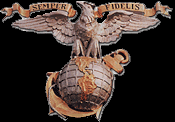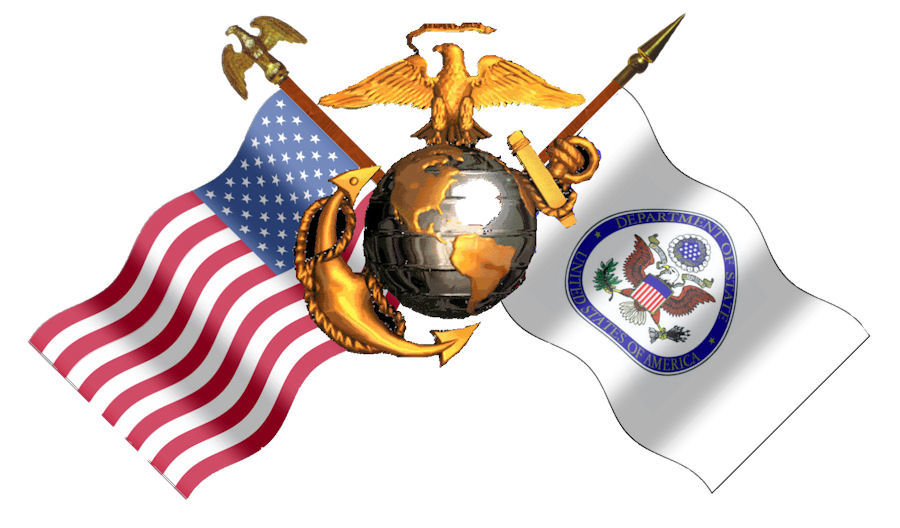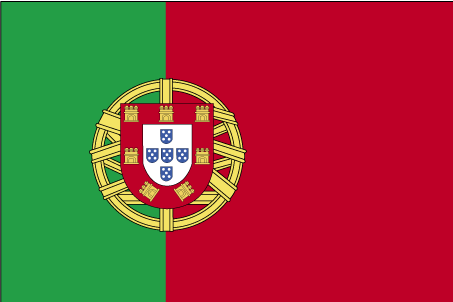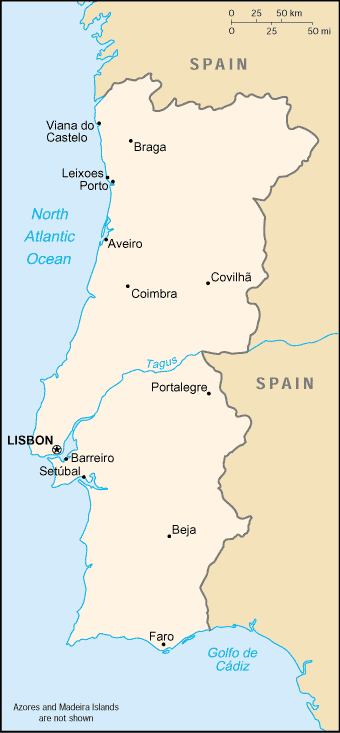|
|
THE
NAMES OF CURRENT DETACHMENT MEMBERS ARE NOT TO BE DISPLAYED WITHOUT THE
AUTHORIZATION OF THE DETACHMENT COMMANDER |
| 2015 |
|
| Ambassador:
Robert
A. Sherman |
Company Commander:
Detachment Commander:
Watchstanders:
|
|
|
| 2014 |
|
| Ambassador:
Robert
A. Sherman |
Company Commander:
Detachment Commander:
Watchstanders:
|
|
|
| 2013 |
|
| Ambassador:
Allan
J. Katz |
Company Commander:
Detachment Commander:
Watchstanders:
|
|
|
| 2012 |
|
| Ambassador:
Allan
J. Katz |
Company Commander:
Detachment Commander:
Watchstanders:
|
|
|
| 2011 |
|
| Ambassador:
Allan
J. Katz |
Company Commander:
Detachment Commander:
Watchstanders:
|
|
|
| 2010 |
|
| Ambassador: Allan J. Katz |
Company Commander:
Detachment Commander:
Watchstanders:
|
|
|
| 2009 |
|
| Ambassador:
Thomas
F. Stephenson |
Company Commander:
Detachment Commander:
Watchstanders:
|
|
|
| 2008 |
|
| Ambassador:
Thomas
F. Stephenson |
Company Commander:
Detachment Commander:
Watchstanders: Joe Califa, |
|
|
| 2007 |
|
| Ambassador:
Thomas
F. Stephenson |
Company Commander:
Detachment Commander:
Watchstanders:
Joe Califa, Hector
Orellana, |
|
|
| 2006 |
|
| Ambassador:
Alfred
Hoffman Jr. |
Company Commander:
Detachment Commander:
Watchstanders:
Alan
Ardelean, Hector Orellana, |
|
|
| 2005 |
|
| Ambassador:
Alfred
Hoffman Jr. |
Company Commander:
Detachment Commander:
Watchstanders:
Alan Ardelean, Scott M. Feran, |
|
|
| 2004 |
|
| Ambassador: John
N.
Palmer |
Company Commander:
Detachment
Commander:
Watchstanders:
Meshach Barkley, Scott M. Feran, |
Barroso
resigned in July, 2004, in anticipation of his being
named president of the European
Commission , and Social Democrat Pedro Miguel de Santana
Lopes was
appointed premier
|
|
2003
|
|
| Ambassador: John
N.
Palmer |
Company Commander:
Detachment
Commander:
Watchstanders:
Meshach Barkley, Scott M. Feran, Jakendrik
R. Stewart, Martin Stress, |
|
|
2002
|
|
| Ambassador: John
N.
Palmer |
Company Commander:
Detachment
Commander:
Watchstanders: Jakendrik
R. Stewart, Martin
Stress, |
Early
parliamentary elections in Mar., 2002, resulted in a defeat
for the Socialists, and Social Democrat José Manuel
Durão
Barroso became premier, heading a coalition with the smaller Popular
party.
|
|
2001
|
|
| Ambassador: Gerald
S. McGowan
/ John
N.
Palmer |
Company Commander:
Detachment
Commander:
Watchstanders: Bruce M.
Mathis, Jacobo D.
Rivera, Jakendrik R. Stewart, Martin
Stress, |
Guterres
and the Socialists were returned to power, again as a minority
government. Sampaio was reelected in Jan., 2001. Social Democratic
victories in the Dec., 2001, local elections led Guterres to resign as
premier and party leader in 2001.
|
|
2000
|
|
| Ambassador: Gerald
S. McGowan |
Company Commander:
Detachment
Commander:
Watchstanders: Nicholas
Alan Lemich, Bruce M. Mathis, Jacobo D. Rivera, |
|
|
1999
|
|
| Ambassador: Gerald
S. McGowan |
Company Commander: LtCol. Ana Smythe
Detachment
Commander: GySgt.
James Faber
A/: Sgt. Brian Allinger
Watchstanders:
Sgt. Justin Cassidy,
Sgt. Ryan Faught, Sgt. Joseph Fortin, Nicholas Alan Lemich, Sgt. David Pendleton,
Sgt. Ernie Reyes, Jacobo D. Rivera, Eduardo A.
Sanchez, |
Portugal
became part of the European Union's single currency plan in 1999; in
October
|
|
1998
|
|
| Ambassador: Gerald
S. McGowan |
Company Commander: LtCol. Ana
Smythe
Detachment Commander: GySgt. James Faber
A/: Sgt. Brian Allinger
Watchstanders: Sgt. Anthony Brooks, Sgt. Justin Cassidy,
Sgt. Ryan Faught, Sgt. Joseph Fortin, Sgt. David Pendleton, Eduardo A.
Sanchez, |
|
|
1997
|
|
|
1996
|
|
| Ambassador: Elizabeth
Frawley Bagley |
Company Commander:
Detachment Commander:
Watchstanders:
Steven Brissette, |
Barred
from running for a
third term, Soares retired as president in 1996; he was succeeded by
another Socialist, Jorge Fernando Branco de Sampaio.
|
|
1995
|
|
| Ambassador: Elizabeth
Frawley Bagley |
Company Commander:
Detachment Commander: GySgt. Ken Gillis
Watchstanders:
Steven Brissette, Antonio Jacinto Ferreira, |
The
Socialists returned to
power as a minority government after the 1995 parliamentary elections;
António Manuel de Oliveira Guterres became premier.
|
|
1994
|
|
| Ambassador: Elizabeth
Frawley Bagley |
Company Commander:
Detachment Commander: GySgt. Ken Gillis
Watchstanders:
Steven Brissette, Antonio Jacinto Ferreira, |
|
|
1993
|
|
|
1992
|
|
|
1991
|
|
| Ambassador: Everett
Ellis Briggs |
Company
Commander:
Detachment Commander: GySgt. Mark
C. Donaldson,
Watchstanders:
|
|
|
1990
|
|
|
1989
|
|
| Ambassador: Edward
Morgan Rowell |
RSO: Mike LaFranchi
Company
Commander:
Detachment Commander: GySgt. Mark C. Donaldson
Watchstanders: Tom
Lanier, |
Constitutional
revision was furthered in 1989. Political stability and economic
reforms created a favorable business climate, especially for renewed
foreign investment, and there was strong economic growth.
|
|
1988
|
|
| Ambassador: Edward
Morgan Rowell |
Company Commander:
Detachment Commander:
Watchstanders:
Tom Lanier, |
|
|
1987
|
|
| Ambassador: Edward
Morgan Rowell |
Company Commander:
Detachment Commander:
Watchstanders:
Tom Lanier, |
|
|
1986
|
|
| Ambassador: Frank
Shakespeare |
Company Commander:
Detachment Commander: GySgt. Rosario
Watchstanders:
Brian Mullery, |
NCOICs
of MSG Detachments now titled Detachment Commanders.
|
|
1985
|
|
| Ambassador:
Henry
Allen Holmes /
Frank
Shakespeare |
Company Commander:
NCOIC: GySgt. Rosario
Watchstanders:
John G. Hart, Brian Mullery, |
| From
1983 to 1985 a coalition government under Socialist leader
Mário Soares
began
to make some headway against the chaos and poverty into which Salazar's
long dictatorship, the African wars, and the 1974-75 leftist revolution
had thrown Portugal. |
|
1984
|
|
| Ambassador: Henry
Allen Holmes |
Company Commander:
NCOIC: GySgt. Rosario
Watchstanders:
John G. Hart, Ray A. Smith, |
|
|
1983
|
|
| Ambassador: Henry
Allen Holmes |
Company Commander:
NCOIC: GySgt. Howard R. Wilson,
Watchstanders:
Dale A. Knox, Ray A. Smith, James J. Thiede, James
Todd, |
The
centrist Social Democratic
party under Aníbal Cavaço Silva won an undisputed
majority in parliament, Soares was elected to the presidency, and
Portugal was admitted to the European Community (now the European Union
).
|
|
1982
|
|
|
1981
|
|
| Ambassador: Richard
J. Bloomfield |
Company Commander:
NCOIC: SSgt. Gerald Talian / GySgt. Howard R. Wilson
A/:
Sgt. Terry Davis
Watchstanders:
Sgt. Gregory M. Bilyeu, Sgt. Gerry Miller, Sgt. Frank Patti,
James J. Thiede, |
|
Comments from Greg
Bilyeu on 27JAN2011: In 1981, the Embassy was literally down
town in an old six-story building right on the
street. The Marine House was in the suburb of Restello, a 20
minute (at
least) drive from the Embassy. Restello, a suburb of Lisbon,
a very RICH
suburb. We lived in a mansion that was leased to the Embassy by
an owner
who apparently had been living in exile since the 1974
revolution.
Apparently things were okay for him to come back so the lease was up
and we had
to move but it was a fantastic place and we held Bar-B-Que’s in the
summer for
the Embassy staff and guests.
Later, in 1981, The Marine House moved further out
to
Estoril, another 20-25 minutes further out. Made getting to React
Drills
real interesting!
When
I arrived in February 1981 there was a lot of turnover going on.
I cannot
recall the NCOIC at the time but he rotated out and was replaced by
GySgt
Wilson. The A/NCOIC at the time was Sgt Terry Davis and he
rotated
stateside in May 1981.
Lisbon had a big NATO
presence. There was an NATO aviation repair/rework facility so as you
might
guess there were a lot of Military Attaches stationed there. We
also got
frequent port calls from US and foreign Naval Vessels. While I
was there
the USS Eisenhower came in as well as the USGC tall ship the
Eagle. The MSG
Det toured both ships as guests.
|
|
1980
|
|
| Ambassador: Richard
J. Bloomfield |
Company Commander:
NCOIC: SSgt. Gerald
Talian A/: Sgt. Tony Sodano
Watchstanders: Sgt.
David Bjorn, Sgt. Raul Garcia, Sgt. Kenneth Ishmael, Sgt. Terry Miller,
Sgt. Andrew Marincic, Sgt. Willie Smith, |
| Comments from Kenneth Ishmael on 25JUL2014:
The Marine House was the mansion in Restello
above Belem. The Embassy was downtown
in an old 6 story office bldg. I was
rotating out when Patti and Terry arrived.
Portugal was not yet a member of the European Union (EU) and was still
reeling from its colonial losses in Moszambie
and Angola. A very politically
unstable period with numerous communist party demonstrations and
government
strikes and work slowdowns. Otherwise a
really great post. Portugal was the
quiet unknown city capital that no one visited on their whirlwind
European
vacation.
|
|
1979
|
|
| Ambassador: Richard
J. Bloomfield |
Company Commander:
NCOIC: SSgt. Gerald
Talian A/: Sgt. Tony Sodano
Watchstanders: Sgt.
Raul Garcia, Sgt. Kenneth Ishmael, Sgt. Andrew Marincic, Sgt. Willie
Smith, |
First Women Marines
accepted for MSG training and assignment.
|
|
1978
|
|
| Ambassador:
Frank
C. Carlucci / Richard
J. Bloomfield |
Company Commander:
NCOIC:
Watchstanders:
Michael D. Banaszek, |
| From
1977
to 1980 several moderate, Socialist-dominated
governments tried unsuccessfully to stabilize the country politically
and economically. In 1980-82, a center-right coalition experienced a
similar fate, although it did succeed in instituting a process of
constitutional revision, which reduced presidential power, the right of
the military to intervene in politics, and the anti-capitalist biases
of
the 1976 constitution. |
|
1977
|
|
| Ambassador: Frank
C. Carlucci |
Company Commander:
NCOIC: SSgt.
Thomas Downey
Watchstanders:
Michael D. Banaszek, Paul J.
Dussault, Sgt. George W. Hardy, |
|
|
1976
|
|
| Ambassador: Frank
C. Carlucci |
Company Commander:
NCOIC: SSgt.
Thomas Downey
Watchstanders:
Paul J.
Dussault, Sgt. George W. Hardy, Randy H. Wilcox,
|
|
|
1975
|
|
| Ambassador: Stuart
Nash Scott / Frank
C. Carlucci |
Company Commander:
NCOIC: SSgt.
Thomas Downey
Watchstanders: Paul J.
Dussault, Sgt. George W. Hardy, Randy H. Wilcox, |
| In
1975,
Angola, Mozambique, São Tomé and
Principe, and Cape Verde were granted independence. East Timor was
forcibly taken over by Indonesia and did not achieve independence until
2002. January to November of 1975 was the period of greatest leftist
ascendancy domestically—most banks and industries were
nationalized, a massive agrarian reform was begun in the Alentejo, and
the MFA-dominated government tried to ignore the elections of Apr.,
1975, which strongly favored moderate parties, and instead relied on
Communist support. Leftist predominance vanished after a failed coup
attempt by radical military units in November, but many features of the
revolutionary period of 1974-75 were incorporated into the constitution
of 1976. |
|
1974
|
|
| Ambassador: Stuart
Nash Scott |
Company Commander:
NCOIC: SSgt. Thomas Downey
Watchstanders:
Paul J. Dussault, Sgt. John Harden, Sgt. George W.
Hardy, Mark
W.
Murawski, |
By
early
1974 dissatisfaction
with the seemingly endless wars in Africa, together with political
suppression and economic difficulties, resulted in growing unrest
within Portugal.
On Apr. 25 an organized group of officers toppled the government in the
Captains'
Revolution , encountering a minimum of resistance from loyal
forces
and enthusiastic acceptance from the people. The officers who initiated
the revolution constituted the Armed Forces Movement (MFA). Gen.
António de Spínola
, who did not play an active role in the coup but had publicly
criticized the Caetano government, was appointed head of the ruling
military junta. The secret police force was abolished; all political
prisoners were released; full civil liberties, including freedom of the
press and of all political parties, were restored; and overtures were
made to the guerrilla groups in the African territories for a peaceful
settlement of the conflicts. In September, Spínola was
forced to
resign and the government became dominated by leftists.
|
|
1973
|
|
|
1972
|
|
| Ambassador: Ridgway
B. Knight |
Company Commander:
NCOIC:
Watchstanders: Phillip
Marks, |
|
|
1971
|
|
| Ambassador: Ridgway
B. Knight |
Company Commander:
NCOIC:
Watchstanders:
Phillip Marks, |
RMO/Regional
MSG commands changed to Company commands with Commanding Officers.
|
|
1970
|
|
|
1969
|
|
|
1968
|
|
| Ambassador: Tapley
Bennett, Jr. |
RMO:
NCOIC:
Watchstanders:
Jim Greenwood, |
| In
1968,
Salazar suffered a
stroke and was replaced by Marcello Caetano as
premier. Under
Caetano repression was eased somewhat and limited economic development
programs were started in Portugal and in the overseas territories. The
continuing armed conflicts with guerrillas in the African territories,
requiring about 40% of Portugal's annual budget to be devoted to
military spending, drained the country's resources. |
|
1967
|
|
|
1966
|
|
| Ambassador:
George
W. Anderson, Jr. /
Tapley
Bennett, Jr. |
RMO:
NCOIC:
Watchstanders:
|
| Censorship
of the press and of cultural activities grew especially
severe in the mid-1960s, as student demonstrations were sternly
repressed. |
|
1965
|
|
|
1964
|
|
|
1963
|
|
|
1962
|
|
| Ambassador: C.
Burke Elbrick |
RMO:
NCOIC:
Watchstanders:
LCpl. Blaese, Fred R. Price, Joe A.
Prather, |
|
|
1961
|
|
| Ambassador: C.
Burke Elbrick |
RMO:
NCOIC:
Watchstanders: Fred
R. Price, Joe A. Prather, |
Portugal's
colony of Goa was seized by India.
|
|
1960
|
|
| Ambassador: C.
Burke Elbrick |
RMO:
NCOIC:
Watchstanders:
Richard V. Keller, Fred R. Price, |
| In
Africa, armed resistance to
Portuguese rule developed in Angola, Mozambique, and Portuguese Guinea
in the early 1960s. |
|
1959
|
|
|
1958
|
|
| Ambassador:James
C. H. Bonbright /
C.
Burke Elbrick |
RMO:
NCOIC:
Watchstanders:
Richard V. Keller, |
| On
the
domestic front, the 1958 anti-government candidate, Gen. Humbert
Delgado, contested the previously phony elections and received almost a
quarter of the vote; a constitutional amendment the following year
changed the method of electing the president. |
|
1957
|
|
|
1956
|
|
|
1955
|
|
| Ambassador: James
C. H. Bonbright |
RMO:
NCOIC:
Watchstanders: Roger
T. Rains, |
Portugal
admitted to the United Nations.
|
|
1954
|
|
| Ambassador: M.
Robert Guggenheim |
RMO:
NCOIC:
Watchstanders:
Roger T. Rains, |
First
formal MSG Training Program established by the Marine Corps in
November, 1954.
|
|
1953
|
|
|
1952
|
|
| Ambassador: Lincoln
MacVeagh / Cavendish
W. Cannon |
RMO:
NCOIC:
Watchstanders:
|
| Under
Salazar's “New State,” economic modernization
lagged,
with the result that Portugal fell increasingly behind the rest of
Europe in the 1950s and 60s. |
|
1951
|
|
| Ambassador: Lincoln
MacVeagh |
RMO:
NCOIC: John R. Boswell
Watchstanders:
Adelbert Adams, Albert Adams, Lawrence Deets, Holloway,
Lambert and Peter O'Connor. |
|
|
1950
|
|
| Ambassador: Lincoln
MacVeagh |
RMO:
NCOIC: John R. Boswell
Watchstanders:
Adelbert Adams, Albert Adams, Lawrence Deets, Holloway,
Lambert,
Lawrence R. Lukecart and Peter O'Connor. |
|
|
1949
|
|
| Ambassador: Lincoln
MacVeagh |
RMO:
NCOIC: John R. Boswell
Watchstanders:
Adelbert Adams, Albert Adams, Lawrence Deets, Holloway,
Lambert, Lawrence R. Lukecart and Peter O'Connor. |
Portugal
became a
member of the North Atlantic Treaty Organization.
First two MSG Detachments established at the American Embassies in
Bangkok, Thailand (6 MSGs) and Tangiers, Morocco (9 MSGs).
|
|
| 1948 |
|
| Ambassador: Lincoln
MacVeagh |
RMO:
NCOIC:
Watchstanders:
|
Memorandum
of Agreement between the DOS and the USMC for the Marine Corps to
provide currently serving personnel to protect classified materials and
American lives and property and to report directly to a designated DOS
Officer at U.S. diplomatic missions worldwide.
|
|















